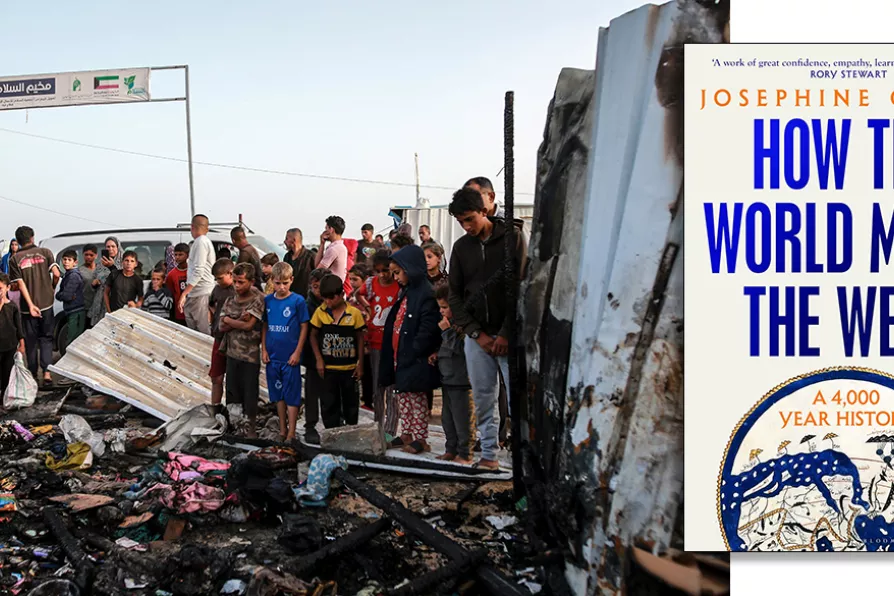SIMON PARSONS applauds an artist who rescues and rehumanises stories of women, the victims of violence, from a feminist perspective

 BARBARITY: Palestinians look at the destruction after an Israeli strike where displaced people were staying in Rafah, Gaza Strip, Monday, May 27, 2024. Palestinian health workers said Israeli airstrikes killed at least 35 people in the area. US weapons are alleged to have been used in the assault.
[Jehad Alshrafi/AP]
BARBARITY: Palestinians look at the destruction after an Israeli strike where displaced people were staying in Rafah, Gaza Strip, Monday, May 27, 2024. Palestinian health workers said Israeli airstrikes killed at least 35 people in the area. US weapons are alleged to have been used in the assault.
[Jehad Alshrafi/AP]
How The World Made The West
Josephine Quinn, Bloomsbury, £30
WHEN Mahatma Gandhi was asked what he thought of Western civilisation, he replied he thought it might be a good idea. Josephine Quinn, in her survey of 4,000 years of history, implies Gandhi might have been being quite generous.
Western civilisation doesn’t have much definitively Western in it, and it’s wrong to think in terms of a civilisation. There aren’t really “peoples,” there are people who travelled, learned, borrowed, and adapted. And often “civilisation” doesn’t quite stand up its reputation.
“Western civilisation” sees itself as the direct inheritance of ancient Greece and Rome. Democracy, liberty, philosophy, theatre and concrete are bequeathed to the West, from the ancients, via the Renaissance.

BRENT CUTLER is intrigued by the imperialist, supremacist and contradictory history of a word that is used all too easily

STEVE ANDREW enjoys an account of the many communities that flourished independently of and in resistance to the empires of old

KEVIN DONNELLY accepts the invitation to think speculatively in contemplation of representations of people of African descent in our cultural heritage

RON JACOBS welcomes a book that tells the story of the far right in Greece from the perspective of migrants










